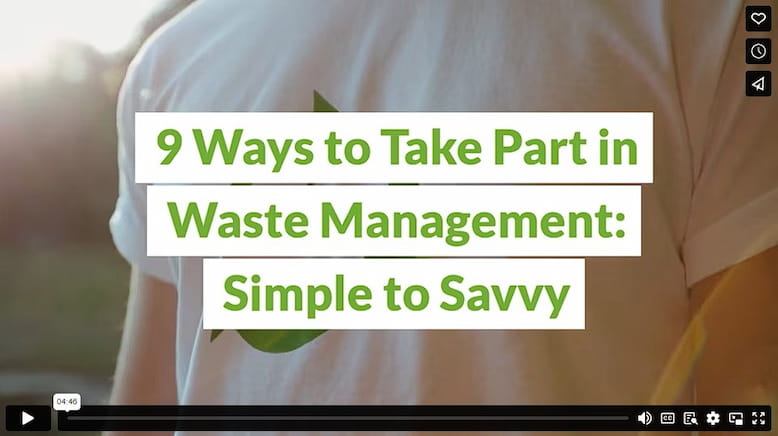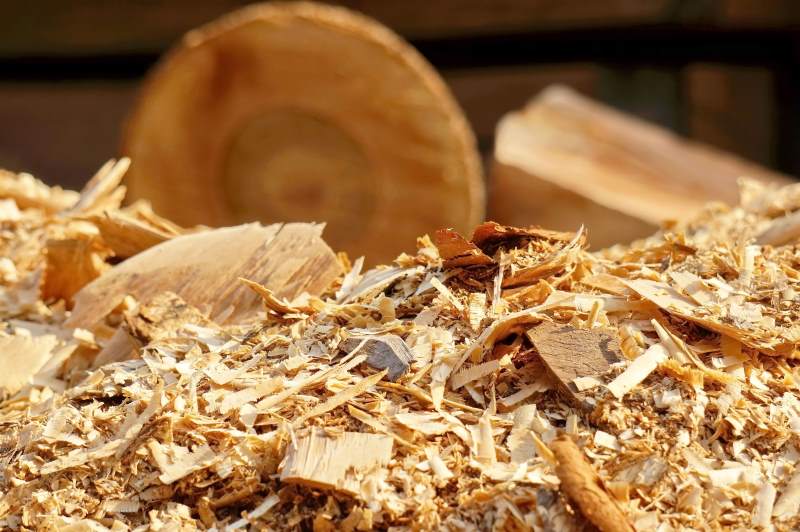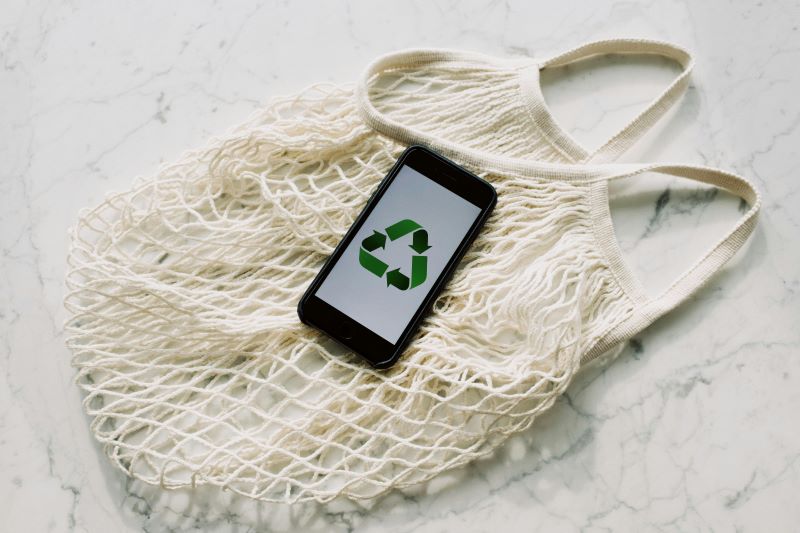Every day, there are 288 five-minute chunks of time. By dedicating one of those chunks or 1/288 of your time, you can take an active part in ridding the world of junk. Waste management is an ever-growing concern, and individual efforts play a crucial role in addressing this global challenge.
From everyday actions to more ambitious ventures, this list offers more than unhelpful greenwashing and virtue-signaling suggestions. Let’s explore nine strategies. We start with the basics and culminate in the innovative option of starting a Tire Recycling Business.
1. Reduce, Reuse, Recycle (5 minutes)
Begin by separating your household waste into recyclables and non-recyclables. This simple practice takes just a few minutes but significantly reduces the amount of waste heading to landfills. Remember, recycling not only conserves resources but also reduces energy consumption in the production of new materials. Reusing can be as simple as reusing plastic bags.
2. Composting (15 minutes a day)
Invest five minutes a day in collecting kitchen scraps, yard waste, and other compostable materials. Composting diverts organic waste from landfills, and over time, produces nutrient-rich soil for your garden. It’s a sustainable solution that enhances soil fertility and reduces the need for chemical fertilizers.
3. Switch to Reusable Products (1 day to transition)
Take a day to transition from disposable to reusable products. Switching to a reusable water bottle, using cloth bags, and opting for a lunch container instead of disposable options significantly cuts down on single-use waste. It’s a small lifestyle change with a big environmental impact.
4. Educate and Advocate (30 minutes a week)
Spend 30 minutes a week educating yourself and others about waste management practices. Share informative articles on social media, participate in local community programs, and engage in conversations about the importance of reducing waste. By becoming an advocate, you amplify the impact of individual actions.
5. Volunteer for Clean-up Projects (1 day a month)
Dedicate just one day a month to participate in local clean-up projects. Join community efforts to remove litter from parks, beaches, or urban areas. Not only does this contribute to waste reduction, but it also fosters a sense of community and environmental stewardship.
6. Support Eco-friendly Businesses (ongoing)
Make conscious purchasing decisions by supporting businesses that prioritize sustainability. Look for products with minimal packaging, made from recycled materials, or produced using eco-friendly practices. Your choices influence market trends and encourage more businesses to adopt environmentally responsible practices.
7. Upcycling and DIY Projects (2 hours a week)
Channel your creativity into upcycling and do-it-yourself (DIY) projects. Spend a couple of hours each week transforming old items into something new and useful. Whether turning old jars into storage containers or repurposing furniture, upcycling minimizes waste and adds a personal touch to your surroundings.
8. Implement Waste Separation at Events (1 event)
If you organize events, take the initiative to implement waste separation practices. Set up clearly labeled recycling, compost, and trash bins to make it easy for attendees to dispose of their waste responsibly. This simple step can significantly reduce the environmental impact of events like weddings, birthdays, festivals and conferences.
9. Starting a Tire Recycling Business (1-2 years)
For those seeking a more substantial impact or a new career, consider starting a tire recycling business. Tires pose a significant environmental challenge due to their slow decomposition and fire risk. It takes one to two years to establish the business, with major costs including tire recycling equipment, transportation, and initial processing setup. However, the potential profits are considerable, and the environmental benefits include reduced pollution and conservation of resources. Tires are recycled into powder rubber or TDR (tire-derived fuel). Both of these products are used in construction industries.
Start Where You Are
Transitioning to a zero or low waste lifestyle doesn’t usually happen overnight. Hopefully, this list gives you ideas that suit your needs, even if you only have five minutes spare. Maybe you can treat this list as a bucket list and try to do them all. Or you can let them inspire you to take action in other areas of your life. The goal is to be a champion for sustainable actions that are most applicable to your own lifestyle.
Practically addressing waste disposal is similar to the issue of climate change. With carbon emissions, the biggest impact one person might be able to make would be committing to flying only once a year. While for others, it might be changing what food they eat. Waste management has even more diverse ways of being reduced or cleaned up, so get creative and don’t put yourself in a box of self-blaming.
Whether making small daily changes or embarking on a more ambitious journey, each step contributes to a cleaner, more sustainable future. By incorporating some of these waste management practices into your lifestyle, you not only reduce your environmental footprint but also inspire others to follow suit.
Video

Infographic
By dedicating just 1/288 of your time, you can actively help reduce waste. Waste management is a growing concern, and individual efforts are crucial. Let’s explore nine practical strategies in this infographic.





